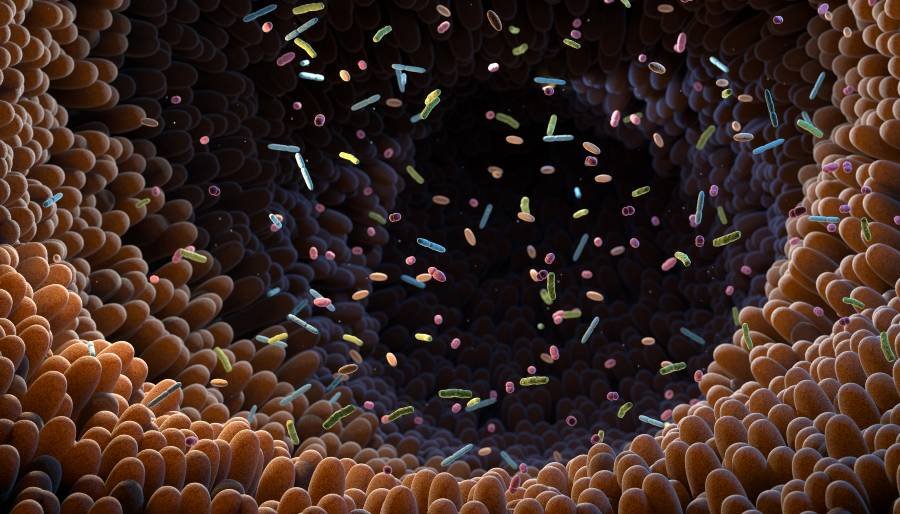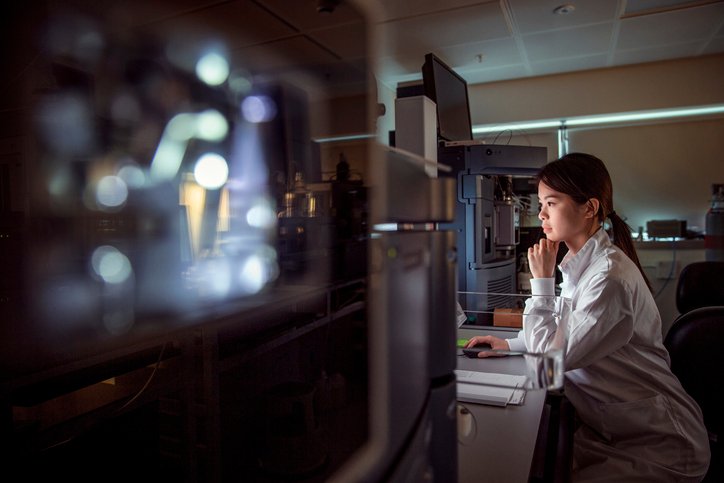By analyzing proteins produced by gut bacteria, researchers from the University of Copenhagen and their collaborators elsewhere may have found a way to develop new types of treatments for widespread chronic disease. Specifically, they identified a bacterial strain that produces two proteins that resemble irisin, a hormone that is released by muscles during physical activity and plays a role in fat metabolism.
Details of their preclinical work in mice are provided in a new Nature Microbiology paper titled “Polypeptides synthesized by common bacteria in the human gut improve rodent metabolism.” According to the paper, the scientists identified two signaling proteins dubbed RORDEP1 and RORDEP2 that influence the body’s hormonal balance and affect weight, bone density, and blood sugar levels. Specifically, the researchers report that RORDEP proteins increase the body’s production of hormones like GLP-1 and PYY, which help regulate appetite and blood sugar as well as insulin levels. These proteins also suppress the GIP hormone, which can contribute to weight gain. RORDEP proteins also directly enhance fat burning.
“We found that the number of RORDEP-producing bacteria can vary by up to 100,000 times between individuals, and that people with high levels of these bacteria tend to be leaner,” said Yong Fan, PhD, assistant professor at the Novo Nordisk Foundation Center for Basic Metabolic Research at the University of Copenhagen and lead author of the study. “In experiments with rats and mice that received either RORDEP-producing gut bacteria or the RORDEP proteins themselves, we observed reduced weight gain and lower blood sugar levels, along with increased bone density. What’s exciting is that this is the first time we’ve mapped gut bacteria that alter our hormonal balance.”
Research into the role of gut bacteria in human health has led researchers at the University of Copenhagen to establish GutCRINE, a biotech company that targets the prevention and treatment of cardio-metabolic disorders through pharmabiotics derived from gut microbiome hormone synthesis. Currently, the company is conducting human clinical trials where healthy participants are given live bacteria that produce RORDEPs to examine the effects of the treatment. A second trial is testing the effects of the RORDEP1 protein.
These trials will assess whether “RORDEP-producing bacteria or the RORDEP proteins—either in their natural or chemically modified form—can serve as the foundation for a new class of biological drugs known as pharmabiotics,” explained Oluf Pedersen, MD, professor of human metabolism at the University of Copenhagen, project leader, and senior author of the new study. He is also CSO and co-founder of GutCRINE.
Furthermore, “looking 10 to 15 years ahead, our goal is to test the potential of RORDEP-producing bacteria for both prevention and treatment,” he added. “We want to investigate whether they can function as a second-generation probiotic—used as a dietary supplement to prevent common chronic diseases—and whether RORDEP-proteins in modified forms can be developed into future medicines for cardiovascular disease, obesity, diabetes, and osteoporosis.”
The post Gut Bacteria Proteins Offer Clues to Chronic Disease Therapies appeared first on GEN – Genetic Engineering and Biotechnology News.




